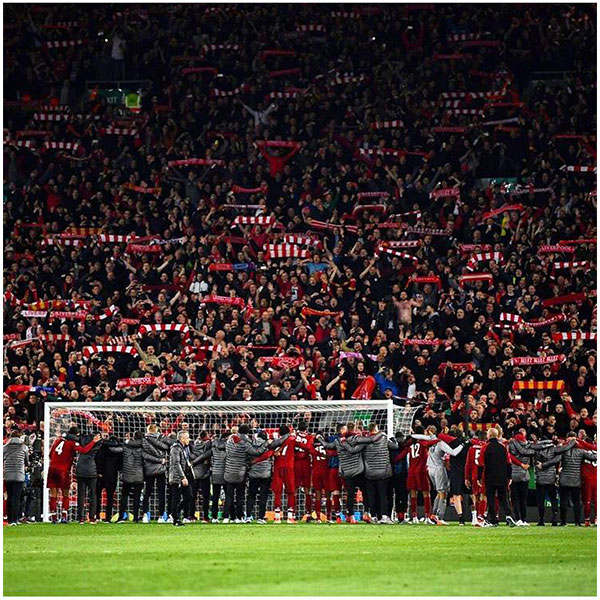Coping with the emotions of the beautiful game ...

A dramatic week in football set to end with the culmination of the premiership. Sports psychologist Professor Andy Lane says it’s just as stressful for fans as the players and offers some advice on coping with the emotions of the beautiful game ...
Someone said to me 'To you football is a matter of life or death!' and I said 'Listen, it's more important than that', a quote from the late great Bill Shankly, former Liverpool manager and widely recognised as the founding father of great Liverpool teams. With ‘You’ll never walk alone’, being the iconic sound Liverpool fans sing before games; when you put quotes like this together, you begin to see why people invest so much of themselves, their identity, in the success and failure of their teams.
This weekend we have the culmination of the premiership, with Manchester City and Liverpool fighting for top spot, and in a few weeks we have the champions league final. We should expect the fans to experience intense emotions: anxiety when they begin to think about the importance of the game, excitement in anticipation of what success might be like, and misery at any thoughts of defeat. In short, fans experience intense emotions and similar emotions to the players. But for fans, the success of the team is largely out of their hands. Their emotional experience is dependent on what other people achieve, or not.
What can fans do to alleviate their emotions? First, it’s a team game and being a fan should be a social activity so watch the game with fellow fans who experience the same emotions. If you can get to the game, then these emotions are intensified. If you are at the game, remember, fans can influence the emotions of the players and the emotions of the officials. A vociferous crowd appealing for a penalty give the referee a more difficult choice on whether to award than a quiet crowd. Crowd noise can be persuasive – if you are at the game, cheer for your team. It might help them win the game, which will reduce anxiety and increase happiness (see https://www.stmedia.co.uk/portfolio/video-production/wolves-fc-video-interview/). If you can't get to the game, you can still connect with other fans via social media. And as a number of players, former players and managers engage with social media, you can interact with them over this common experience.
Managing emotions can be done in a number of ways. Learning strategies that work is a really good part of self-care. The intense emotions experienced as a sports fan are very real and so taking this experience seriously is worth it. If your team lose, you might feel depressed and be extremely upset at the time. It's worth having a few strategies ready if you feel this way. Distraction is a good emotion regulation and so is changing the situation. One way to change your emotions is to exercise and so post game, or the next day, intense exercise is a good way to change how you feel and forget why you are sad.
Changing how you think about the event is a good emotion regulation strategy. It’s worth remembering that the game is not actually about life and death but a competition that is to provide entertainment. Your team will have further opportunities; thoughts such as this are hard to do at the time. But intentional attempts to think about the event differently, placing it in context against other life events, maybe the birth of a child, can serve to reduce the intensity of unwanted emotions.
My view is that sport is emotional; the intense emotions we experience as fans and competitors are part of the reason we enjoy it. It’s a bit of roller coaster at times, and being on that roller coaster, is actually enjoyable!
- Andy Lane is Professor of Sport Psychology, Director of Research Excellence at the University of Wolverhampton's Faculty of Education, Health and Wellbeing
For more information please contact the Corporate Communications Team.


/prod01/wlvacuk/media/departments/digital-content-and-communications/images-2024/Diane-Spencer-(Teaser-image).jpg)
/prod01/wlvacuk/media/departments/digital-content-and-communications/images-18-19/220325-Engineers_teach_thumbail.jpg)
/prod01/wlvacuk/media/departments/digital-content-and-communications/images-2024/240509-Menopause-Research-Resized.jpg)
/prod01/wlvacuk/media/departments/digital-content-and-communications/images/Maria-Serria-(teaser-image).jpg)
/prod01/wlvacuk/media/departments/digital-content-and-communications/images-2024/241014-Cyber4ME-Project-Resized.jpg)
/prod01/wlvacuk/media/departments/digital-content-and-communications/images-2024/240315-Research-Resized.jpg)
/prod01/wlvacuk/media/departments/digital-content-and-communications/images-2024/BDA-group-photo.jpg)